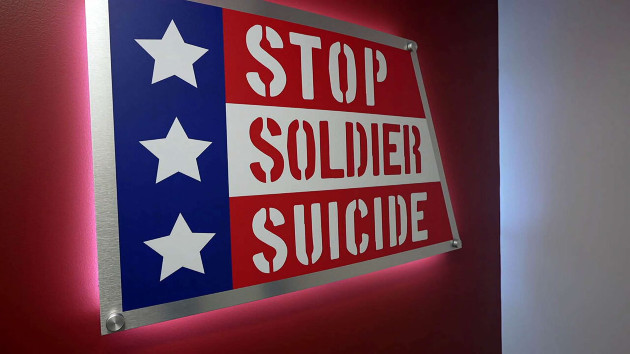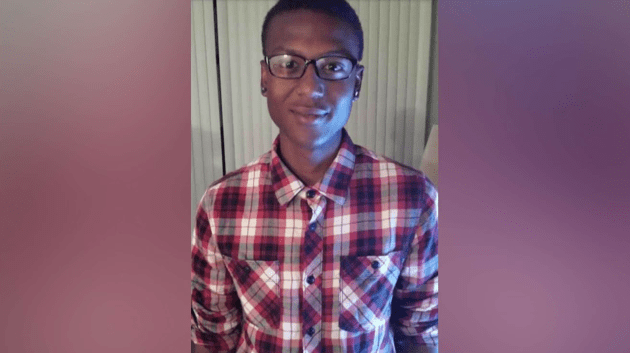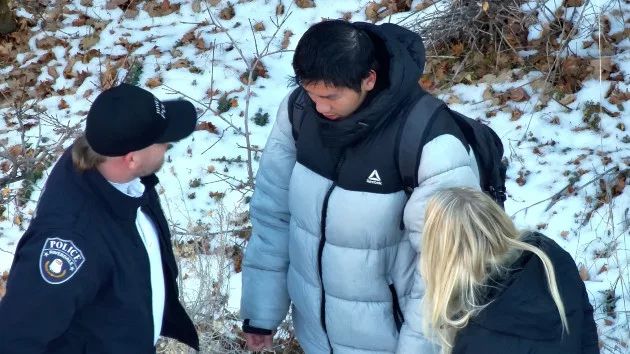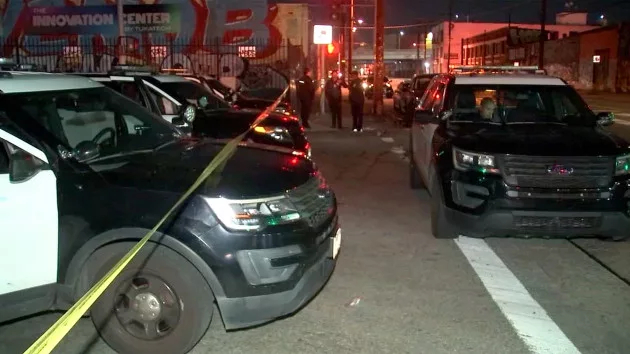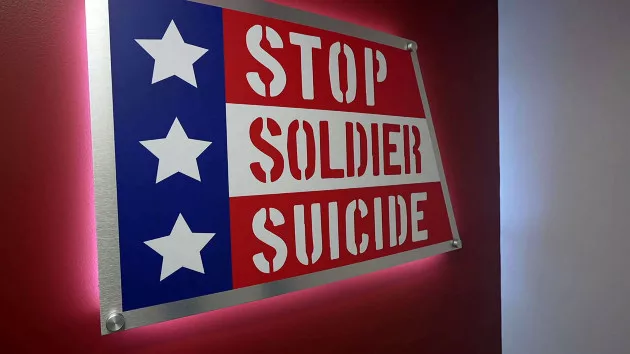
(NEW YORK) — The cell phones, tablets and laptops left behind by veterans who died by suicide may offer insight that could help prevent future military suicides, according to a nonprofit dedicated to analyzing the data from the devices.
Stop Soldier Suicide collects the technology as part of its initiative, “The Black Box Project,” which is named after the black boxes found on planes that help determine the cause of aviation incidents.
“If we could gather novel data from those that have died by suicide, we might be able to recreate the last year of life,” Stop Soldier Suicide CEO Chris Ford told ABC News.
Veterans are 57% more at risk for suicide than non-military adults, and around 6,000 veterans die by suicide each year, according to the Department of Veterans Affairs.
“I think we can prevent needless suffering and a ton of loss of life,” Ford said.
That kind of loss is something David McDaniel, whose son Conor died by suicide at the age of 26, knows all too well.
Conor McDaniel joined the Army after high school, and, according to David, he appeared upbeat during his deployment to Afghanistan, where he was assigned to protect local villages from the Taliban.
“Some of his Army buddies told me that he was making them laugh while they were being shelled in Afghanistan,” David McDaniel told ABC News.
But it wasn’t long after Conor came home that David McDaniel says he sensed a shift in his son’s behavior to include “more anger, a lot of frustration, a lot of gloominess.”
On Sept. 1, 2021, David says his son entered a wooded area with a firearm.
“I start screaming his name as I’m walking up the field. And just then the police, the sheriff’s department shows up and they tell me to come back down,” McDaniel said.
He followed their direction, but on the car ride home, an officer called him and said Conor was dead after he fired upon sheriff’s deputies and the deputies returned fire and killed him.
Conor’s death was determined to be a suicide. The district attorney’s office concluded that the officers’ actions were justified.
While grappling with his son’s death, David McDaniel was immediately drawn to the Black Box Project, which uses forensic software to unlock and comb through service members’ devices provided by their loved ones to review their activity in the weeks leading up to their suicides.
McDaniel works in the tech field and says if the project can find repeated patterns in online searches, they may be able to help others to prevent suicides.
For instance, McDaniel says his son searched for SGLI, Servicemembers’ Group Life Insurance, before his death. If a veteran were to make a similar search and look up “suicide” in the future, for example, McDaniel suggests it could trigger an ad for Stop Soldier Suicide to pop up and provide resources in the search results.
Ford says the nonprofit uses machine learning, a subfield of artificial intelligence, to analyze texts and notes in order to determine sentiment or emotional tone, such as anger or desperation. He says they can also track phone usage of the deceased veterans to monitor their past sleep cycles and trace their past geo-locations.
“Machines can go through computations a lot faster than humans, and they can find signals that we often miss,” Ford said.
Since launching the Black Box Project in April 2020, Stop Soldier Suicide has received over 100 devices, Ford said. So far, he says they’re seeing three patterns before most of these suicides: more anger, different sleep patterns and social isolation.
Ford’s team includes Ph.D.s in clinical psychology and suicide researchers. A scientific advisory committee helps steer where and what to look for on the devices.
The findings are still preliminary, according to the nonprofit, but one goal is to help the organization decide where, when and how to target their own mental health resources, like adding more hotline staff at certain hours and ensuring calls are picked up overnight.
When asked about privacy concerns of collecting data, Ford said it’s something they think about daily.
“We don’t resell the data. We don’t push it out to others. We use it for our own research purposes so that we can best understand risk and then give those devices back to those families intact,” Ford said.
Current privacy laws do not carry on past death, meaning the next of kin typically gains new authority.
Petra Oxford-Jackson, whose veteran husband Anthony died by suicide, says she gave his phone to the organization with the possibility it could save even one life.
“I truly believe he would have been okay with it, and it’s a hard thing for a survivor to give up something so personal as his cell phone,” Oxford-Jackson told ABC News.
The Black Box Project received $3 million in funding from the Department of Veterans Affairs earlier this year.
If you are struggling with thoughts of suicide or worried about a friend or loved one, call or text the Suicide & Crisis Lifeline at 988 for free, confidential emotional support 24 hours a day, seven days a week.
Copyright © 2023, ABC Audio. All rights reserved.


